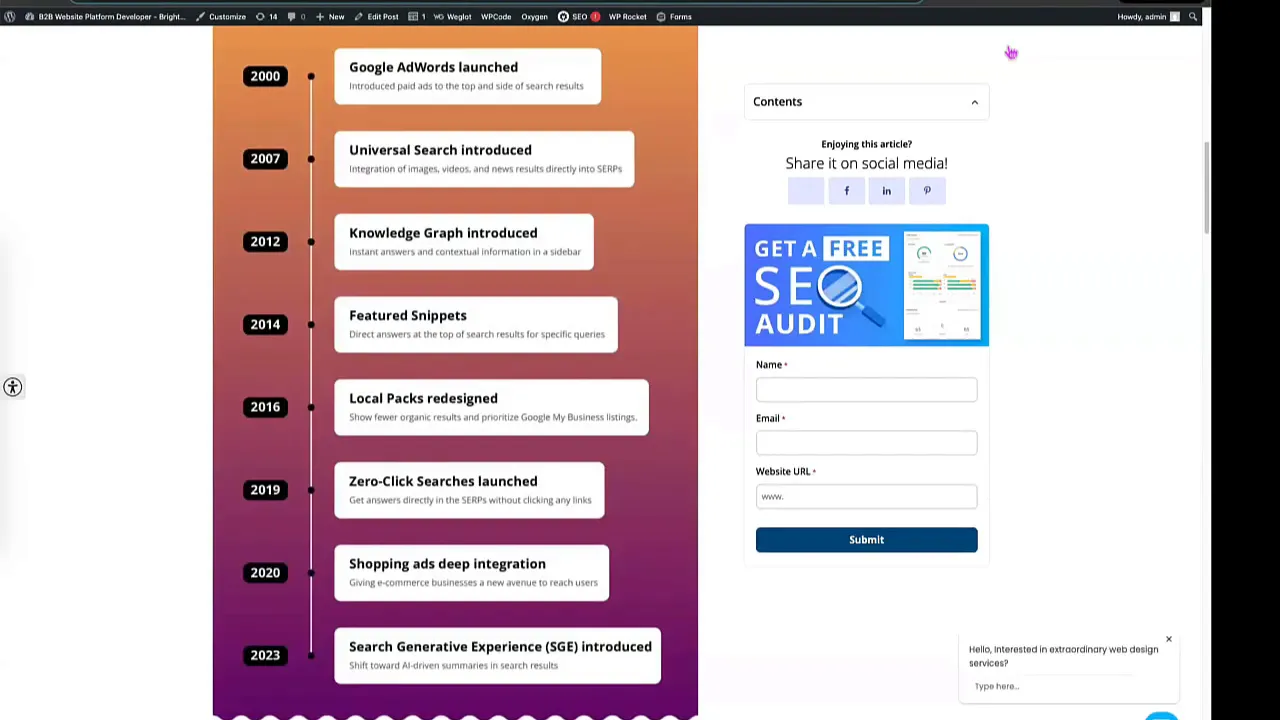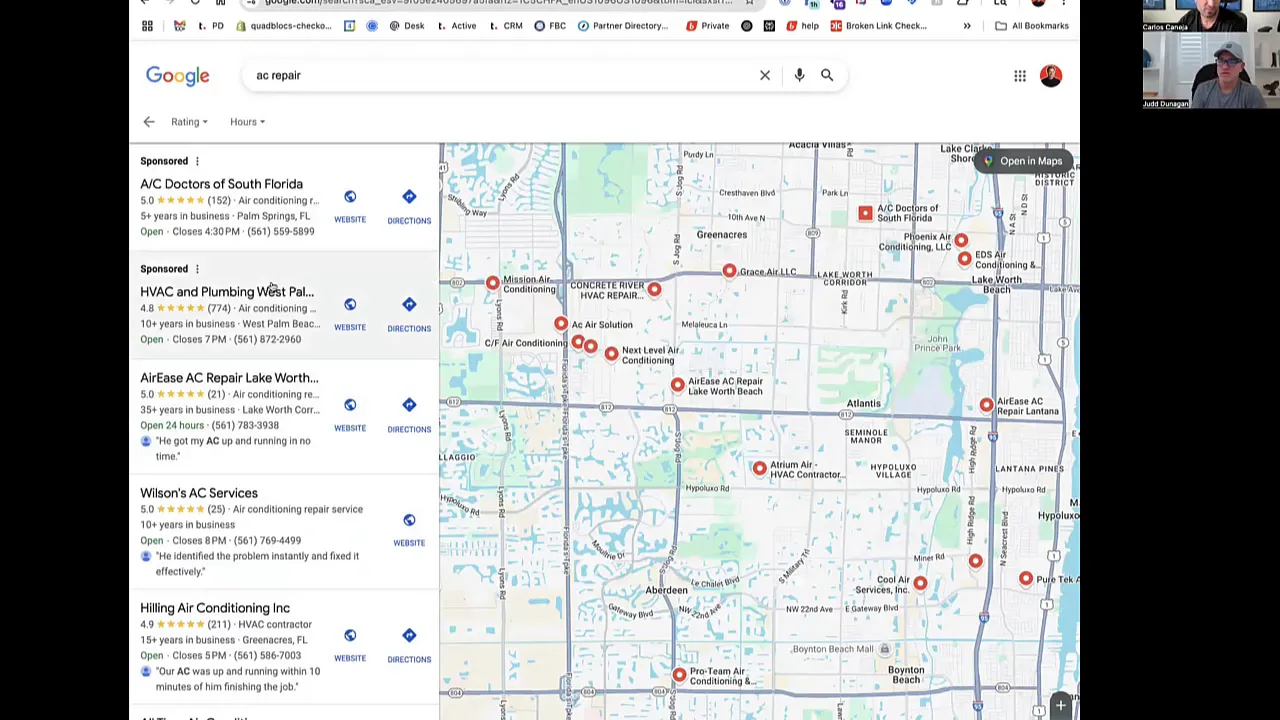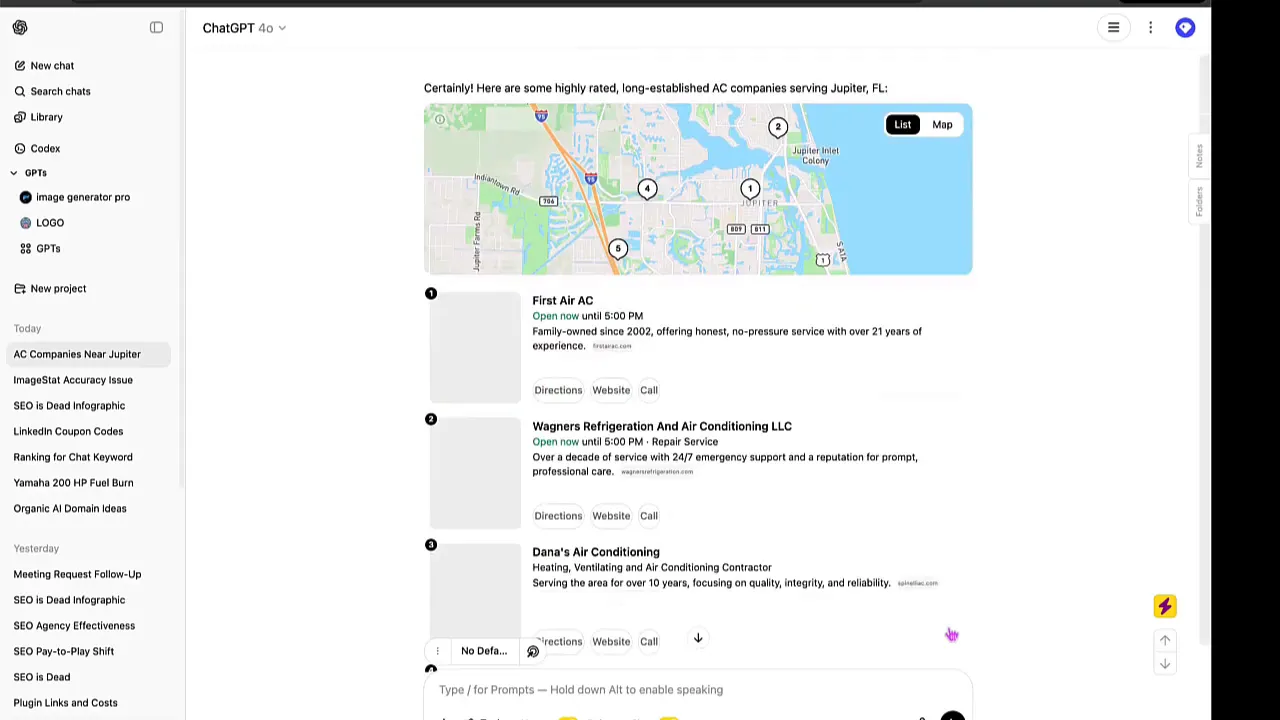Is SEO Dead in 2025? What’s Still Working and What’s a Waste of Time
“Is SEO dead?” This question has been swirling around the digital marketing world for years, but in 2025, it feels more relevant than ever. With the rise of AI-generated summaries, zero-click searches, and Google’s constantly evolving algorithms, many marketers and business owners wonder whether traditional SEO still holds value or is simply a relic of the past.
In episode 8 of the Bright Commerce Podcast, hosts Carlos and Judd dive deep into this topic. They unpack the seismic shifts in search engine behavior, explore what strategies still drive traffic and leads, and reveal why SEO as a standalone service might be fading. This article captures the essence of their conversation, providing clarity and actionable insights for businesses navigating the complex SEO landscape in 2025.
Table of Contents
- The Evolution of SEO: Why Some Say It’s Dead
- Google’s Strategy Shift: From Organic Traffic to Pay-to-Play
- Zero-Click Searches and AI: The New Reality
- SEO Is Not Dead, It’s Evolved
- The Rise of Local SEO and Google My Business
- The Role of Paid Ads in Your 2025 SEO Strategy
- AI Search Tools vs Google: A Comparative Look
- SEO for E-commerce and Competitive Niches
- SEO Best Practices for 2025
- Conclusion: Is SEO Dead in 2025?
- Frequently Asked Questions
The Evolution of SEO: Why Some Say It’s Dead
SEO, or Search Engine Optimization, has been a cornerstone of digital marketing since the early 2000s. For years, businesses could rely on optimizing keywords, backlinks, and website structure to climb Google’s rankings and capture organic traffic. However, as Judd explains in the podcast, many clients still think SEO works like it did in 2007 or 2012, which is far from the reality today.
One central turning point was in 2012, when Google introduced the Knowledge Graph, a sidebar that delivers instant answers and contextual information directly on the search results page. This began Google’s shift from simply directing users to websites to providing answers right on the SERP (Search Engine Results Page).
Over time, Google has layered on features like Featured Snippets, zero-click searches, and AI-driven summaries, reducing the need for users to click through to external websites. This evolution fundamentally changed the SEO landscape, making the traditional approach less effective.

Google’s Strategy Shift: From Organic Traffic to Pay-to-Play
Google’s primary customers are advertisers, not website owners. This shift in focus means that while organic results still exist, Google increasingly prioritizes paid ads and keeps users on its platform longer. Judd highlights how many successful companies in the past, such as Vitacost and TigerDirect, were built on organic search traffic, but today, Google’s model favors a pay-to-play system.
This means businesses now get only a fraction of traffic organically, while Google monetizes most search interactions through ads. As a result, many marketers notice that SEO efforts cost more but deliver fewer direct website visits.
Zero-Click Searches and AI: The New Reality
One of the most dramatic changes in SEO is the rise of zero-click searches, where users get their answers directly on the search page without clicking through to a website. Judd shares statistics showing that approximately 65% of Google searches result in no clicks, 25% lead to organic results, and only 10% are paid clicks.
AI-driven search experiences, such as Google’s Search Generative Experience (SGE), further shorten the path to answers by providing summarized responses. This shift means that SEO is not just about ranking for keywords but also about how your content is presented and integrated with AI and local search features.
SEO Is Not Dead, It’s Evolved
While Carlos argues that SEO, as it was known, is dead, Judd counters that SEO has evolved. It’s no longer a standalone service focused solely on website rankings. Instead, SEO today involves a broader strategy that includes local business listings, reputation management, content marketing, and paid advertising integration.
For example, if your air conditioner breaks, you’re unlikely to rely on AI or chatbots to fix it. Instead, you want to find a trusted local professional with good reviews and authority. This is where SEO still plays a critical role, helping local businesses appear prominently in Google Maps and Google My Business listings.
The Rise of Local SEO and Google My Business
Local SEO has become a dominant force in search marketing. Judd explains that businesses must optimize their Google My Business (GMB) profiles to appear in local searches, especially for service-based industries. This includes maintaining accurate business information, gathering favorable reviews, posting updates, and ensuring citations across directories.
Interestingly, many users now prefer calling businesses directly from the search results rather than filling out web forms. Judd notes that 8 to 9 out of 10 local leads come from calls instead of website form submissions, emphasizing the importance of local search visibility.
Google’s local service ads (LSA) also provide businesses with premium placement, effectively bridging paid and organic strategies for regional dominance.

The Role of Paid Ads in Your 2025 SEO Strategy
Paid advertising, especially Google Ads, remains a crucial complement to organic SEO. Judd and Carlos agree that relying solely on organic traffic is risky and often insufficient in today’s market. Paid ads deliver immediate traffic and conversions and provide valuable insights into the keywords and search terms that convert.
Running a well-structured AdWords campaign can inform your SEO efforts by highlighting which terms to target and optimize. This allows you to adjust your metadata, content, and site structure accordingly.
However, there is skepticism about Google’s newer ad formats like Performance Max (PMax). Judd criticizes PMax for a lack of transparency and control, often dispersing budgets across networks like Gmail and YouTube, where conversions may be lower. In contrast, traditional search campaigns and local service ads offer better conversion rates and clearer ROI.
AI Search Tools vs Google: A Comparative Look
The podcast hosts experimented with AI tools like ChatGPT and Grok to find local service providers, such as highly rated AC companies near Jupiter. While AI could pull together valuable information, it still lacked the authority and real-time review data that Google offers.
Judd points out that Google’s strength lies in its authority and comprehensive local ecosystem, including verified reviews, business rankings, and map integration features, which AI search tools cannot fully replicate.
AI tools are powerful assistants, but to get the best results, users must ask specific, well-structured questions and often still rely on Google’s platforms for authoritative local business information.

SEO for E-commerce and Competitive Niches
When it comes to e-commerce, SEO faces even steeper challenges. Judd shares a real-world example of a shampoo brand trying to compete against giants like Walmart and Amazon. In such cases, organic SEO alone is unlikely to yield results without substantial investment and a broader strategy.
For e-commerce, integrating Google Shopping campaigns with paid ads often offers better conversion rates than standard search or PMax campaigns. Judd advises clients to focus on Google Shopping as a primary paid channel while supporting SEO with strong content, social signals, and optimized site architecture.
SEO Best Practices for 2025
Despite the changes, some core SEO principles remain vital:
- Content is King: Creating high-quality, relevant, and regularly updated content helps build authority and supports AI-driven summaries.
- Local Optimization: Maintain a fully optimized Google My Business profile with accurate info, reviews, and regular posts.
- Mobile-Friendly and Fast: Ensure your website is responsive and loads quickly, as site speed heavily influences rankings and user experience.
- Use WordPress for SEO Control: WordPress remains the top platform for SEO due to its flexibility, ownership of code, and powerful SEO plugins like Yoast or Rank Math.
- Schema Markup and Metadata: Properly structured data helps search engines understand your content and display rich results.
- Combine Paid and Organic: Use paid ads to gather data and generate leads while strategically building an organic presence over time.
- Social Signals: Active social media engagement supports SEO by signaling relevance and authority.
Judd also emphasizes the importance of setting realistic expectations with clients, educating them about SEO’s complexities and continuous nature, and steering them towards a holistic digital marketing approach rather than quick fixes.
Conclusion: Is SEO Dead in 2025?
So, is SEO dead in 2025? The answer is nuanced. Traditional SEO as a standalone service, focused purely on keyword rankings and backlinks, is largely obsolete. Google’s evolution has shifted the game towards a pay-to-play model, zero-click searches, and AI-driven results that keep users on their platform.
However, SEO as a broader strategy is alive and well. It has transformed into a multifaceted discipline that includes local SEO, content marketing, reputation management, paid search integration, and technical site optimization. Businesses that embrace this new reality, combining organic and paid strategies, optimizing for local search, and effectively leveraging AI tools, will continue to thrive.
For local businesses, Google My Business and local service ads are critical. For e-commerce, paid Google Shopping campaigns paired with strong SEO fundamentals offer the best chance of success. And for all businesses, a fast, mobile-friendly website powered by platforms like WordPress remains essential.
Ultimately, SEO in 2025 is not dead; it’s evolved. It demands a more innovative, integrated approach that adapts to the changing search landscape and leverages all available tools to connect with customers effectively.
Frequently Asked Questions
Is SEO completely useless in 2025?
No, SEO is not useless. While traditional SEO tactics have changed, SEO as a comprehensive strategy involving local optimization, content creation, and paid ad integration is still vital for online success.
What is zero-click search, and why does it matter?
Zero-click search refers to search results where users get answers directly on the search page without clicking through to a website. It matters because it reduces organic traffic to websites, pushing businesses to adapt their SEO strategies.
How important is Google My Business for local SEO?
Google My Business is crucial for local SEO. It helps businesses appear in local search results and Google Maps, and drives phone calls and visits rather than website clicks.
Should I invest in paid ads if I want SEO results?
Yes, paid ads complement SEO by providing immediate traffic and valuable keyword conversion data. A combined approach yields better overall marketing performance in 2025.
Are AI search tools like ChatGPT a threat to SEO?
AI tools change how users search, but do not replace SEO. They can assist in content creation and answering queries, but authoritative websites and local business listings remain essential for conversions.
Which platform is best for SEO in 2025?
WordPress is considered the best platform for SEO due to its flexibility, control over code, and availability of powerful SEO plugins like Yoast and Rank Math.
What are some SEO best practices to follow today?
- Create quality, relevant content regularly.
- Optimize your Google My Business profile.
- Ensure your website is mobile-friendly and fast-loading.
- Use schema markup to help search engines understand your content.
- Leverage paid ads to gather conversion data and drive leads.
- Maintain active social media profiles to support SEO efforts.
The key takeaway for businesses and marketers looking for clarity in the shifting SEO landscape is understanding that SEO is not dead but evolving. Embracing new tools, strategies, and a holistic approach is essential to succeeding in 2025 and beyond.
For more insights and expert services, visit Bright Vessel and Bright Code.
